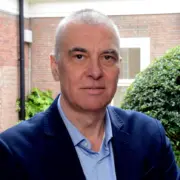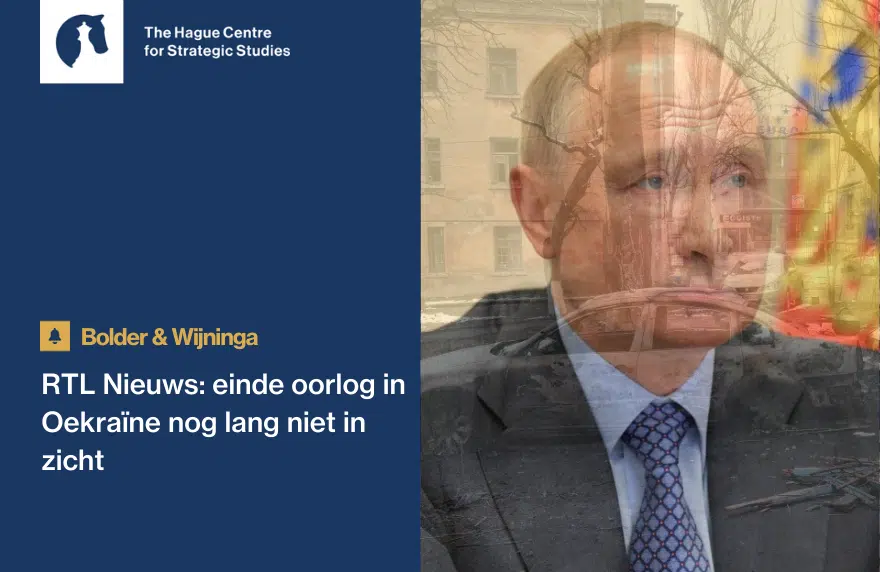Saoedi-Arabië heeft zijn zinnen gezet op kernenergie. Maar wie kerncentrales heeft, is maar een kleine stap verwijderd van het bouwen van kernwapens. Amerika maakt zich zorgen, zeker nu de Saoedi’s toenadering tot China lijken te zoeken. Patrick Bolder sprak erover bij RTL Nieuws.
Zelfs als het alleen om onschuldige kerncentrales gaat, zou de bouw ervan een zorgelijke ontwikkeling kunnen zijn. “Als je het vermogen hebt om energie uit uranium te maken, dan ben je met dezelfde techniek ook in staat om uranium te verrijken”, legt strategisch analist van The Hague Centre for Strategic Studies (HCSS) Patrick Bolder uit. “En met hoogverrijkt uranium kun je wapens maken. Dat kan in principe wel bedreigend zijn.”
Mocht Saoedi-Arabië inderdaad kernwapens willen maken, dan is dat wel te verklaren, zegt Bolder. “Als je beschikt over kernwapens dat is dat een soort veiligheidsgarantie. Kijk naar Noord-Korea: zonder kernwapens zou dat land niet meer bestaan.”
Met kernwapens zou Saoedi-Arabië zijn positie kunnen versterken. Bolder: “De grote vraag is: wil je gelijk optrekken met andere machtige landen of achteraan staan?”
Terwijl Amerikaanse inlichtingendiensten hun wenkbrauwen fronsen, lijkt Trumps Witte Huis nog wat voorzichtig te zijn in het afkeuren van de plannen van Mohammed bin Salman. De Saoedi’s zijn oorspronkelijk bondgenoten van de Amerikanen. En pogingen om zelf tot een overeenkomst te komen met de Saoedi’s als het gaat om hun nucleaire plannen zijn gestrand.
De vrees is dat Saoedi-Arabië samenwerking met de VS heeft opgegeven, en definitief voor nucleaire samenwerking met het minder veeleisende China heeft gekozen. Op dat laatste heeft het Witte Huis overigens wel afkeurend gereageerd. De Chinezen zouden volgens de VS mogelijk overgaan tot strategische manipulatie of diefstal van technologie.
Sinds Obama een nucleaire deal sloot met Iran, hebben de Saoedi’s de hoop opgegeven dat ze altijd op hun Amerikaanse bondgenoten kunnen rekenen. En dus moeten ze – met hulp van China – militair gezien meer op eigen benen gaan staan.
Bolder deelt die laatste analyse niet meteen. “Zo’n kernprogramma is natuurlijk iets van de lange adem. Dat begin je niet zomaar vanwege één president. Maar de steeds sterker wordende positie van Iran zou wel een rol kunnen spelen.”
Des te opvallender is het, stelt Bolder, dat Saoedi-Arabië lijkt te gaan samenwerken met China. De Chinezen zoeken tot nu toe vooral samenwerking met Iran. En de Saoedi’s maken juist veel afspraken met de Amerikanen.
“Als China inderdaad gaat samenwerken met Saoedi-Arabië is dat wel een nieuwe verschuiving in de wereld. Een hele nieuwe wending, die met interesse gevolgd zal worden.”
Of het ook gaat escaleren zodra Saoedi-Arabië kernwapens zou hebben? Die kans schat Bolder niet heel groot in.
“Uiteindelijk geven kernwapens je het vermogen om te kunnen escaleren op zo’n manier dat je tegenstander straks niet meer bestaat. Maar die drempel is natuurlijk erg hoog. Er zijn wel veel spanningen tussen kernwapenstaten, zoals China en de VS, India en Pakistan, maar de kernwapens worden niet daadwerkelijk ingezet. Uiteindelijk is het vooral een strategisch drukmiddel.”
Lees het hele artikel van Frederieke Hegger bij RTL Nieuws.




